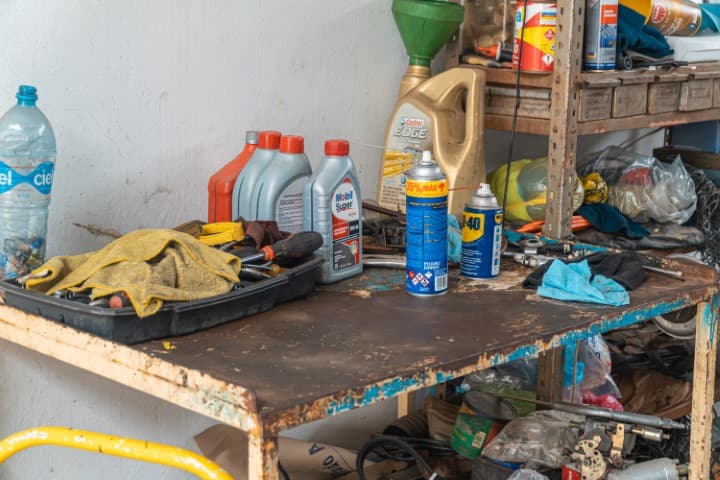Table of Contents
- Introduction to keeping up your car and the importance of tune-ups
- What does a car tune-up usually consist of?
- What is included in a tune-up?
- Why maintenance is important in car?
- Can I skip a car service?
- What maintenance is necessary for a car?
- Can a car last 500000 miles?
- Should I rotate tires every oil change?
- How does a tune affect your car?
- What does it mean if a car has a tune?
- How long should spark plugs last?
- How much does a tune-up cost at Walmart?
- Do cars run better after an oil change?
- Final thoughts on the importance of keeping up with your car’s maintenance
Home » Do you really need to do car tune ups, and why?
Introduction to keeping up your car and the importance of tune-ups
So you feel that your car has been feeling under the weather lately. It’s not breaking down, but the performance has not been excellent either. Or maybe you want to squeeze out every single hidden potential that lies deep within your car. The answer to both questions is tuning up.
One thing you need to know, however, is that tuning is not a simple DIY project you can do on the weekend. Sure, if you genuinely understand what you’re doing, or maybe you are a trained mechanic, then, by all means, tune up your car to your heart’s content. Otherwise, letting the professional tune your vehicle for you is better.
That being said, it is always better to at least have some knowledge about tuning up a car, whether or not you’re the one who ends up doing it. With that in mind, here are some questions that will help you understand more about car tune-up.
What does a car tune-up usually consist of?
A tune-up will differ slightly depending on the model of the car or who does the tune-up. That being said, on average, a tune-up consists of three main things. Inspection, fixing/replacing, and cleaning.
Every tune-up begins with a visual inspection of everything under the hood. Some newer cars might need special computerized tools in order to better inspect the engine. But for most cars, a thorough visual inspection should be sufficient.

Once the problematic parts are found, they will either be fixed or replaced with new parts. Last but not least is cleaning. After all, a clean engine is a smooth engine, and we aren’t talking about the plastics on the outside. We are talking about the inside, so maybe that is an oil change, or a transmission flush ( when needed) or other fluids. That’s why although cleaning may seem to be a trivial matter, it is actually extremely important.
What is included in a tune-up?
Similar to the previous section, what’s included in a tune-up depends highly on the cars and the person who does the tune-up. But on average, there are four main parts that should be thoroughly checked in a tune-up. Ignition, filters, belts and hoses, and fluids.
Ignition is all about the car’s spark plugs, coils, and other kinds of electrical components. Filters are there to make sure everything is where it is supposed to be, such as oil, air, fuel, etc.
Belts and hoses are the delivery system that makes sure everything goes where it is supposed to go. Fluids are the things that make the engine run as it is supposed to. The engine oil, brake fluid, coolant, and every other fluid should be at its recommended level or changed to a new one if needed.
Why maintenance is important in car?
If you keep up with the scheduled maintenance of your car it should last longer. This is because it is kept in good shape, with clean fluids and parts. This should give you the best chance of avoiding major issues with your car.
Can I skip a car service?
Yes you can, but this will increase the chance of damage to your cars internal engine parts. Oil and other fluids keep everything running smoothly. You do not want to have that risk because the cost of an oil change will be less than the damage of a seized motor.
What maintenance is necessary for a car?
Although it is not necessary, it is highly suggested. Some people will put off maintenance, but if you want to lower the chance of issues with your car it is suggested that you stay in line with the car makers suggestions.
Can a car last 500000 miles?
Yes. In the past decades cars have become more and more likely to last longer and longer. There are some cars that have lasted more than 1 million miles.
Should I rotate tires every oil change?
So what is the significance of rotating the tires of your car? Well, the answer is simply to prevent the wear and tear from happening only in certain parts of the tire. If your car runs heavier on one part of a tire on one side, then rotating them will ensure even patterns on all tires. This will ensure you get the best bang for you buck and don’t just make holes in the heavy wear areas. This in turn helps prolong the age of the tires.
Most professionals recommend you to rotate the tires every six months, or at least every 5000 miles, which is why most car owners opt to rotate the tires at the same time as an oil change. One thing to keep in mind, though, is that different car models might have different mileage.
Another bonus of rotating the tires is that you will be probably checking the PSI of the tire. That is the Pounds per Square Inch, which is basically how inflated they are. This is why it is great to do as under, or over, inflated tires will hurt performance, mileage, and can reduce the life of your tires. For more info about the importance of keeping an eye on your PSI check out our full article that goes over the subject in good detail.
How does a tune affect your car?
When you experience a breakdown, you take your car for repair. When you wish everything on it works properly, you take it for regular maintenance. A tune-up is mainly for everything under the hood, plus the tires.
As mentioned earlier, you tune up your car in order to make sure everything related to the engine works properly. In a way, a tune-up can keep your car’s engine healthy and prolong its life expectancy.
What does it mean if a car has a tune?
Continuing from the previous section, a car that has undergone a tune-up means it will have a smoother and healthier engine. That is precisely why it is highly recommended for car owners to tune up their cars at regular intervals.
However, there is a caveat to that statement. A tune-up is not the only thing that can affect the health of your car’s engine. How you drive it on a day-to-day basis is also a big part of its overall health.
Other than that, another big part of the equation is the age of the car. No matter how many times you tune up an old engine, it won’t be able to perform as well as it was.
How long should spark plugs last?
The life expectancy for spark plugs depends highly on the type of spark plugs used in any given car. Not only that, different car makers usually put different kinds of spark plugs for their cars. Even different models from the same manufacturer can also have different kinds of the spark plug.
Therefore, the best guide on changing the spark plug is the owner’s manual you’d get on every new car. You can also find this specific information whenever you bring your car for its regular maintenance.
That being said, a general life expectancy is often used within the industry. A standard copper spark plug should last for about 10,000 miles. The silver plugs can last for about 20,000 miles. The iridium or platinum ones can last for up to 60,000 miles. And the high-end iridium and double platinum plugs can even last for a whopping 100,000 miles.
How much does a tune-up cost at Walmart?
Sometimes, the best place to tune up your car is simply the one closest to your home. And when it comes to location, Walmart pretty much exists all over the country. So it is highly likely that you’ll have an easier time finding Walmart in your area rather than a professional auto service.
So how much does a tune-up cost at Walmart? Let’s take a look at its oil change services just so that you can have an idea of how much it costs compared to your favorite auto services.
When this article was written, the cost for a standard oil change at Walmart was $32.88. High-mileage oil and Semi-synthetic oil cost $42.88. And synthetic oil change costs $52.88. For a more comprehensive look into their tune-up services, you can visit Walmart’s official website here [1].
Do cars run better after an oil change?
Generally speaking yes, your car should run better after an oil change. It should feel smoother and can even idle and drive with less hesitations.
One thing to take note of, if you have neglected to do an oil change for a very long time there is a chance that your car might feel a bit different after you have put clean oil in. This is because the old oil was in such bad condition that it had done some damage. Then a new , clean, oil is added and it exposes some of the damage that has been done. Sad to say the damage is already there, but you can stay on top of your oil changes to avoid any additional damage.
Final thoughts on the importance of keeping up with your car’s maintenance
Every car will benefit greatly from a good and regular tune-up. It can help your engine run smoothly and remain healthy for a long time. You can do it yourself if you know what you’re doing. Otherwise, taking it to a professional would be a better option.
Tune-up consists of several different services, but it can be summed up as inspection, fixing/replacing, and cleaning. Different places will charge different fees for a tune-up. Not only that, but the cost might also differ depending on the kind of car that you have.
That being said, while tuning up a car is always recommended, how you drive it every day will also affect its health. So be sure to always drive safely and mindfully. I guess it is like going to the gym and forgetting a day. If you miss one day not a big deal, but sometimes one day turns to one week then one month then you have added a bunch of weight and getting back into the routine will be very hard. After all, no one wants to look like this on a road trip, when they remember about all the tune ups they missed:


